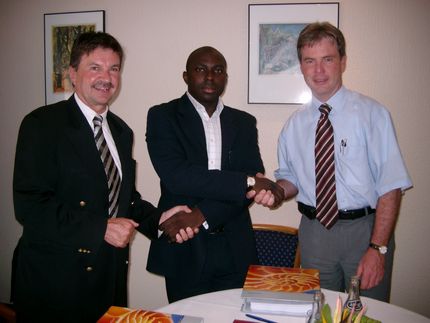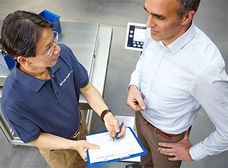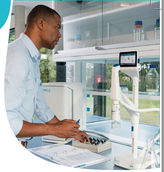Yale School of Medicine’s International Health Program to be Expanded with Funding from Johnson & Johnson
Advertisement
Yale School of Medicine’s International Health Program, which sends U.S. physicians-in-training to countries in the developing world, will expand with funding from Johnson & Johnson.
The Yale International Health Program (IHP) was founded in 1981 by Michele Barry, M.D., and Frank Bia, M.D., in an attempt to foster a more global vision of health care in a traditional internal medicine program by sending physicians-in-training overseas to provide needed services in underserved areas throughout the world. Over 300 residents have participated over the past 20 years in this program.
“The International Health Program has sent the valuable skills of Yale’s well-trained medical residents to many underserved areas of the world, bringing back better doctors and leaving behind much needed medical care,” said Ruth Edelson, a member of the Johnson & Johnson Corporate Contributions Committee. “Johnson & Johnson, as a leading health care company, has seen the results and is proud to extend these life-changing opportunities to a greater number of physicians both inside and outside the Yale community.”
Johnson & Johnson has become the sole sponsor of the program, and, as evidence of its commitment to continuing support, has designated the IHP a "Signature Program," placing it at the highest level of Johnson & Johnson's corporate contributions program. Participating medical residents, beginning in the 2001-2002 academic year, will be designated Johnson & Johnson Physician Scholars in International Health.
This grant will enable the IHP program to fund Yale medical residents completely and will allow residents from other medical schools to participate through a national competition.
In addition, a unique sabbatical program will be initiated for career physicians eager to work with patients in medically underserved countries. The Yale/Johnson & Johnson program will become a national model for international health training during residency and beyond.
A study of the program conducted by Anu Gupta, M.D., a Robert Wood Johnson Clinical Scholar at Yale, and published in The American Journal of Tropical Medicine & Hygiene, found that doctors who participated in the IHP were more likely later to care for patients on public assistance, substance abusers, patients infected with HIV and immigrant patients. The residents felt such experiences also improved their skills in taking patient histories and conducting physical examinations.
“By placing physicians trained in the U.S. face to face with the broad range of health care needs in the developing world, the Yale/Johnson & Johnson program hopes to instill a sense of global citizenry and create local and international community activists in health,” said Michele Barry, professor of internal medicine and public health, and co-director of the IHP.
Frank Bia, M.D., professor of internal medicine, and laboratory medicine and co-director of the IHP, said, “We also believe the art of the physical examination, honed through this experience, becomes an increasingly important part of any physician’s skills -- some of which may have atrophied in the age of high tech medicine.”
The program now sends medical residents for four to eight weeks to hospitals in Haiti, South Africa, Zimbabwe, Fiji, Russia, Cuba, Indian Health Services and other sites, but there are plans to broaden the scope of the program to include hospitals in other areas, such as Vietnam and Nepal.





























































